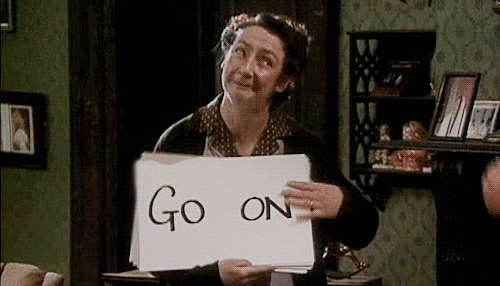I.H. Laking's Blog, page 3
August 15, 2016
Status Update.
Well, it’s been a while.
Last time we talked, I was busy reviewing the ASA’s Literary Speed Dating event. Since then, I’ve been working on a bunch of projects, but wanted to give a quick update on new work that’s in the writing pipeline.
The biggest news is the launch of my new mailing list! Now’s the time to sign up and be one of the first to hear the latest news first, as well as special updates that won’t be going on the blog. The first person to sign up today will receive a special gift: my eternal gratitude!
Go on, you know you want to!
In writing news, my main focus over the past month has been my new Inspector Ambrose novella, The Clockwork Dungeon. The story is now in draft form, and there’s a fair bit of work still to be done. All thing being equal though, I have a plan for the release and cover, so I’m really happy with where things are at.
And the newest news (I know, I’m not correcting it) is that I’m finally getting around to the novella-isation of my Twitter Fiction Festival story, featuring Qan from the Eastern Empire. It’s a story I’ve wanted to do justice to with a long version, and now I’m getting right into it.
There are many other bits & bobs in the works, and to the best way keep up to date with all the exciting developments is by joining my mailing list!
See you in the library, folks!








August 4, 2016
Transitioning to Writing Full Time: A Conversation with Emerging Author Alex Fairhill.
Hi everyone. While some people leap into writing early, others make that choice years, sometimes even decades, into other careers. Alex Fairhill is an emerging author who left a journalism career to pursue fiction. Here’s our conversation about starting out as an author later in life.
Ian: Thanks for taking the time to chat about your career transition and how you’ve found things!
Alex: Thanks for asking me.
I: What was your background before you started writing fiction?
A: I worked as a journalist for almost twenty years, starting as a cadet and working through the subediting ranks to deputy editor.
I: That sounds like a massive journey. I imagine you saw a lot of change during that time.
A: Definitely! The internet didn’t exist as a media platform when I started.
I: Did your former career influence your decision to start writing fiction?
A: It was the other way around. I’d always loved writing fiction but was constantly told an author wasn’t a good career option. I majored in journalism and literature at uni, and most of what we studied for lit were classics or written by older writers. Writing fiction didn’t seem like an option for a 20-year- old graduate.
I: I imagine it was hard to see how you could pay the bills whilst writing fiction.
A: Absolutely. Journalists are paid to write, and I thought, somewhat idealistically, I could write stories about topics that mattered. That was before I started off writing real estate editorials.
I: So you stepped right into journalism – what was the moment that you decided to make the switch to fiction?
A: We’d moved to a new town and I was freelancing when we became parents through permanent care – permanent foster care in Victoria – and one of the placement requirements was that I didn’t work for 12 months. We bonded with our son over reading, and I fell in love with kids’ books again. After the year was up we realised our son needed the support of a stay-at- home parent. It was the right time to have a serious crack at what I’d always wanted to do, with the flexibility to be there for our son.
I joined SCBWI and Writers Victoria, started attending meetings and workshops, and enrolled in a Graduate Certificate in Writing and Literature to find out how the industry worked, as it’s different to journalism.
I: It certainly is – what did your friends and family think of the switch after two decades of journalism?
A: My former colleagues weren’t surprised – the media was in full freefall by then and many had already moved into other careers. My husband’s incredibly supportive, and my son’s a brutally honest first reader, which is great. The reactions of other friends and family were mixed – some couldn’t understand why I did it, others wondered why I hadn’t done it sooner! Some probably won’t ‘get it’ until I’m published.
I: Sometimes it’s hard for people to accept anyone as a ‘real’ author without a publishing deal to show for it.
A: For sure. I’m always asked what I’ve had published, but as you say, that’s not unusual for emerging writers. I’ve had people assume I’ve been doing this for 20 years, not three or four, and question why I’m still going if I’m not published. There’s a perception that emerging writers are all young, but it’s about experience, not age. I’m in a program where the ages range from 23 to 60-something. Writing is universal – it can be done by anyone at any age, and despite what I was told at school, age and life experience are not prerequisites to becoming an author – it takes hard work, dedication and a willingness to learn.
I: That’s solid advice. So what were the challenges involved in making the switch?
A: Writing under a pen name’s been challenging because I’m effectively starting from scratch. I’m lucky because I can write full-time – we lived on one income for a year and just kept doing it. But I put a lot of pressure on myself to make the writing happen so I could contribute financially, along with studying what had become a full-time Masters degree. Then I hit health issues and started doubting my abilities and every decision I’d made.
I: It sounds like self-care became really important.
A: It did. I had to slow down because that doubt was paralysing me. Once I stopped putting pressure on myself and stressing over things I couldn’t control I began to enjoy the writing again, too.
I: So what have some successes and missteps been in your transition?
A: One surprising success was my study. It’s not for everyone, but I loved it. By the time I finished my Masters last year I was aiming for a PhD. The degree helped me expand my writing – I started wanting to write picture books, but ended up landing on middle grade and YA.
The main misstep was expecting too much too soon. I was overenthusiastic – I sent off manuscripts before they were ready and wrote some terrible cover letters and synopses.
I: I think many writers can relate to putting work out there too early, myself included!
A: I cringe when I think about some of those letters! After I finished studying I was worried I wouldn’t be able to write full-time, and it took time to find a balance, but I’m enjoying it. My natural hatred of housework helps!
Success-wise, I was awarded a 2016 Maurice Saxby Mentorship and a place in the 2016 HARDCOPY manuscript development program for two separate YA manuscripts, which floored me, and had my first creative piece published in a magazine. It feels like the slow, steady work of the past few years is coming together.
I: You’ve already given us a lot of good advice, but is there anything you’d say specifically to someone who’s further on in their career and considering a switch to writing full time?
A: There’s a few things. First, do it because you enjoy writing. Do it slowly, hone your skills, do the research, have things in your life other than writing, and take care of yourself. Get involved with your writing community. I volunteer for Writers Victoria, and the organisation’s workshops – I started going to general ones and then those targeting specific skills – have been invaluable for improving my writing and meeting other writers. I live in a regional area and studied online, so this real-life connection has been important in lessening isolation.
And seek out feedback. Enter competitions, go to pitching events, read rejections with an open mind, join a writers’ group or online critique group. Feedback is invaluable.
I: Agreed! Thanks heaps for offering your perspective, Alex. It takes real courage to move between careers, thank you for letting us in on your journey.
A: You’re welcome!
There are lots of twists in every writing career, and I hope Alex’s journey helps you with yours. If you’re enjoying this current series of interviews and reflections, please take the time to sign up to my mailing list to ensure you never miss a beat!








July 21, 2016
Doing and Dreaming: an Interview with Emerging Author Cassandra Frances.
Hi folks. During this past week I’ve been reflecting on the fact that there are two types of writers when it comes to publishing: those who do, and those who dream. Not everyone makes the leap from thinking about writing and publishing a work, and actually taking steps toward making it happen.
Someone I know who’s taking bold steps towards her publishing dream is Melbourne emerging YA author Cassandra Frances. This week, we caught up to chat about Cassandra’s experience going from dreaming to doing with her writing.
Ian: Hi Cassandra, thanks for making the time to chat about the dreaming and doing dilemma.
Cassandra: No problem!
I: So maybe we can start with the beginning – have you always been interested in?
C: Well, I wrote my first book at 7 which was a blatant rip off of Labyrinth, except that it featured me as a goblin princess. It did pretty well, in that my teacher gave me a gold sticker even though it had nothing to do with the actual task we’d been given in class.
I: Let’s be honest – that’s enough motivation to last at least a year.
C: For sure. I realise now that I had always wanted to be a writer, though it took until I was 26 to actually have the confidence to admit it to myself.
I: That’s a big gap.
C: I know! Somewhere along the way someone said to me that I couldn’t possibly be a writer (probably another teacher) and I gave up on the idea for a long time. Which now makes me a bit sad to think about it.
I: Wow, that’s harsh. I think adults often underestimate the influence a few discouraging words can have on a child. So what happened during those intervening years?
C: During that time I did think a lot about writing and stories (I consider stories what I do and words the medium with which I make them with) and I guess that put me first in the dreamer category of writer. Which we all need to be first. I mean, I’ve got my Oscar speech for best adapted screenplay already written in my head. And it’s an important part of the dreaming – the ‘Well why not me?’ aspect.
I: Totally. So when did you start thinking about seriously writing again?
C: It’s hard to pinpoint when I really started thinking about writing again. I think it was when I was dumped in public by a man that I was ridiculously in love with. I went home after crying in the streets and wrote out all these stories as some sort of revenge. But what was different from writing angsty journal entries was that I went back and rewrote them, and started polishing them, and I found that as satisfying as the initial outpouring of emotion. I entered one of those stories in a competition and it was the runner up, so I realised that maybe, just maybe, what I had to say could resonate with people.
I: What an outcome. So was it all smooth sailing from that point?
C: Well, not every story had the same level of immediate success! At some point, I realised that I needed to put my butt in a chair and make up a spreadsheet to keep track of my submissions and rejections. That was when I realised that I was doing something more than just thinking about being a writer.
I: So after that you went and studied literature – how did you find that experience?
C: I’m an academic sort so it made sense to me to go studying writing formally, which I did at the University of Melbourne’s Master’s program. There’s a lot written for and against formal study of creative writing but I know that what I learned in those two years would have taken me ten years on my own. And the bottom line is always that you get out what you put in.
I: Agreed. So where are you at now? How are you putting your dreams into action?
C: I’ve finished my masters, and starting to get a decent portfolio that I am shopping around. I’ve put my oscars speech aside for the moment and am just focusing on a book launch speech!
I: Good plan! So is there any advice you’d give to all the aspiring authors dreaming out there?
C: Advice. Hmm, I’m always wary of giving advice because some of it becomes too rigid and people become bogged down by things like ‘write what you know,’ and ‘show don’t tell,’ but, to thine own self be true (Shakespeare is great and still worth copying off). So don’t write what you think will be popular. When you are ready get a empathetic writing group to share your work and importantly gripe about all the things that come with writing. Courses are great if you are prepared to do the work afterwards and are a great way to dip your toe in the water.
I: So what’s your advice for writers looking for a place to start ‘doing’?
C: Just start. If it’s not the right place, you’ll get there. Whether you write on your own for a few years then do some courses, or if you dive into some of the excellent Writers Victoria courses. You’ll find the right place. The bottom line is, if want to be a writer, make sure writing is something you do the majority of your time. When you write more than you do any other hobby, that’s when you can start calling yourself a writer.
I: Love it. Thanks heaps for your time Cassandra, and all the best with your ongoing publishing journey!
C: Anytime.
It was great hearing about Cassandra’s experience first-hand. The question is: what step are you going to take with your writing today? I’m on my own publishing journey, and if you’re keen to see how it unfolds, sign up to my new mailing list to be the first to know any developments!








July 12, 2016
Three Reasons why the State Library of Victoria is the Heart & Soul of Melbourne.
I love Melbourne.
Having moved here six years ago from New Zealand, I can testify to the warmth, diversity, and life this great city exudes. Melbourne’s famous for its coffee, sports, and arts culture, but if you really want to experience the heart and soul of Melbourne, you’ll find it sitting at the top of Swanston street, nestled between La Trobe and Little Lonsdale Streets. That’s where you’ll find the State Library of Victoria – Melbourne’s heart and soul.
There are many things to love about the State Library. Built in the mid-19th century, the State Library is a sprawling repository of all things Victoria, taking up an entire city block with its many secrets and surprises. It also boasts one of the only green spaces in Melbourne’s CBD in front of its impressive frontage – a space where protestors, lovers, and tourists gather – often to observe people playing chess on the giant chessboard, or to watch the trams rumble by. (Plus, who could forget the awesome statues?)
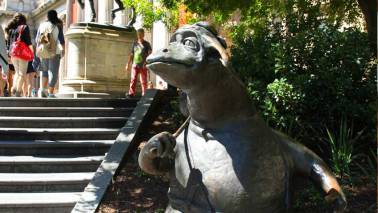
But in case you don’t believe me, here are three reasons why I think the State Library of Victoria is Melbourne’s heart and soul:
The Wheeler Centre for Books, Writing, and Ideas.
In the south wing of the State Library sits The Wheeler Centre, which operates independently from the library and provides a versatile space for small organisations to base themselves from, as well as hosting literary, cultural, and social events. The Wheeler Centre was established after Melbourne became a UNESCO City of Literature, and you’ll find several organisations working out of The Wheeler Centre’s offices – Writers Victoria, Melbourne Writers Festival, and the Small Press Network to name a few. The Wheeler Centre teems with ideas, events, and life, not to forget The Moat – home to many great conversations over fantastic food and drink.
The Dome and public spaces
The State Library features a breathtaking dome at its heart, which echoes the British Museum and the Library of Congress. It’s hard to describe the beauty of sitting under The Dome and writing fiction – but it inspired me so much that I wrote an entire novel whilst sitting beneath its airy majesty. Part of the beauty of the La Trobe Reading Room which sits beneath The Dome is being surrounded by dreamers, writers, and everyday people enjoying the experience of being present in the space.
Throughout the library, there are numerous other spaces where you can sit, write, read, and relax. How many other public spaces are there in Melbourne (with free wifi!) that enable such an atmosphere to exist? Not many. There’s always a seat at the State Library, and all are welcome to sit and take part in the great advancement of human understanding.
.@IHLaking
Dome, dome, dome, dome, dome
Readers, writers and dreamers
Dome, dome, dome, dome, dome pic.twitter.com/AsnTxKL8kf
— State Library Vic (@Library_Vic) June 14, 2016
The Collections:
It might seem obvious, but the final reason the State Library is Melbourne’s heart and soul is because of what is housed inside. There’s the Cowan Gallery, filled with art; the collections of rare and unique books, and of course, Ned Kelly’s armour. I’m just naming a few of the collections the State Library of Victoria has in its possession – let’s not forget the decades of newspapers, both physical and digitised, as well as historcial documents and records. Whatever you’re into, the State Library can help you find out more about it.
The State Library Victoria is Melbourne: filled with history, sports, arts, and culture, it’s an eclectic building that’s grown and morphed throughout time to reflect changing needs of Victoria’s capital. Whether you’re sipping a coffee at Mr Tulk or in The Moat, or staring up at the dome and taking in the magnificent architecture, you know that you’re in the heart of everything that’s Melbourne.
I’ve only scratched the surface with these examples, because the event spaces, cafes, offices, and opportunities in the State Library are too many to put into one post. The thing is, you shouldn’t just take my word for it. Head down to the State Library. Read a book, write your thoughts down, or just sit and dream for a while.
Because the State Library isn’t just an end in itself; it’s the beginning of a hundred different journeys every day.








July 4, 2016
Getting Practical: Writing on a 12″ Macbook.
Welcome! Today I want to tell you the story of my switch from PC to Mac, and why I’ll never go back.
In December last year, I decided to finally make the leap into the world of Apple laptops, having toyed with the idea for a while. After struggling to find a review of what it’s like to write longer form fiction on a new 12″ Macbook when I was researching my choice, I thought I’d put together a short review myself.
The Machine
I ended up going for the 12″ Macbook despite its price and lack of power. The Macbook isn’t really built for high-usage tasks, with a wimpy processor, and not a lot of RAM. That being said, having less options for programs helps reduce distractions. The display on the Macbook is crystal clear, and the weight is awesome, coming in at about 900 grams(!) The biggest drawback is the single USB-C port for power & USB. It’s a hassle, but possible to work around.
The Software
Mac OSX is super smooth, and uses Apple’s native word processing software (Pages). Using Pages is the biggest difference for writers moving from PC to Mac, and I’ll get to that soon. In general, if you’re already using Apple products, you’ll find Mac OSX super easy to adjust to; otherwise, it may take a bit longer. Either way, I think Mac OSX is a great operating system.
Using the 12″ Macbook
The 12″ Macbook is a dream to cart around with me. It’s small enough to fit into my Crumpler bag that’s designed for a tablet, and is fantastically light. The Macbook will come travelling with me overseas from now on, because it’s almost the same as taking a tablet with me anyway. The battery life is great, and I can even leave the charger at home if I’m just heading out to write locally. Speaking of writing…
So far, I’ve written over 150,000 words on this Macbook. There are two concerns I find most writers have about using the 12″ Macbook: navigating Pages, and using that keyboard. Here’s my experience with both of those issues:
First off, I found Pages to be fantastic, and much easier to use than Word. The simplified menus in Pages are easy and intuitive, and being able to revert to previous document versions is handy. The lack of icons and menus means there’s less stuff to look at when you’re writing – which true of the Macbook’s design in general. One irritation for me is the way Pages handles starting italics/bold text on a new line – but that’s pretty minor, and I’ve learned to deal with it. In terms of getting documents between platforms, you can export to Word from Pages, and importing docs is a cinch. In my opinion, once you get used to it, Pages is superior to Word in almost every way.
In terms of the practical experience of writing, the keyboard was by far my biggest worry. The keyboard has had a lot written about it, and in general the reviews are mixed. I decided to put my fears aside, and I’ve found the keyboard to be great. The keys are larger and closer together than a traditional keyboard, but I haven’t found myself making typos more than usual. Nor have I found my fingers getting tired, since the keys are super responsive. If anything, the keyboard has made every other keyboard in the world feel clunky. In short: I love it, and you shouldn’t believe the hype about the keyboard not being up to scratch.
The Bottom Line
So, after all that, would I recommend writing a long form fiction on a 12″ Macbook? Absolutely; I don’t regret my decision one bit. I will admit that the Macbook is pricey, and that can be prohibitive for some people. But if you’re willing to part with the cash, you’ll score yourself a light, convenient, and easy to use machine with software that enhances the experience of writing. Personally, I love being able to write in an uncluttered, focused environment, easily navigating all the features I need. There are a few minor inconveniences, but if you’re willing to pay a little more to get a fantastic writing experience, I’d encourage you to take the leap and get yourself a Macbook. The Macbook has changed my writing experience for the better is so many ways, and that’s why I’ll never go back to writing on a PC again.








June 26, 2016
Literary Speed Dating: Reflections, Tips, and All You Need to Know.
A quick note: This post features my experience of Literary Speed Dating, and something that I found hard to find before the event: advice and tips on the practicalities of Elevator Pitching/Literary Speed Dating events from real-life authors! Head halfway down for the fantastic advice.
Part I: My Literary Speed Dating Experience:
Breathe in. Breathe out. Don’t. Panic.
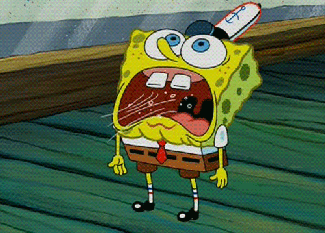
That was pretty much me in the week leading up to the Australia Society of Authors annual Literary Speed Dating event. In a nutshell, a group of publishers gathered in Melbourne’s Wheeler Centre to hear pitches from aspiring authors. For two hours, sixty people lined up for their chance to have three minutes with a publisher. Their aim: to get a “we’d like to hear more” from a publisher, and receive a business card with details of where to submit their manuscript.
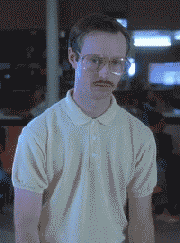
For me, Literary Speed Dating was a great opportunity to finally present my novel concept to industry professionals and gauge their responses, positive or otherwise. In the lead up to Saturday, I found myself reflecting on how much writing has come to mean to me; on why I’m putting myself through this, and on how I’m planning to take my stories to the world. I did my research before the event; reading synopses, samples, and dozens of book reviews to build an understanding of where my novel sits in the scheme of things. In the end, I settled on “somewhere between Philip Pullman’s His Dark Materials and Sarah J. Maas’ Throne of Glass.”
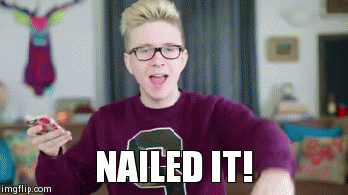
On Saturday, I arrived at the event equipped with a literary CV which had been professionally put together by a graphic designer, one of my book covers for illustrative purposes, and some breath mints. Always with the breath mints. The event itself went by in a flash. The Writers Victoria host gave us a rundown on how things would work (desks with publishers, lines for each, and a microphone call for start, two minutes, and end of a session). Then that was it. I found myself making a beeline for my ‘top pick’ (I had a list), and within ten minutes, I was there, telling someone who hears hundreds of ideas a year what I’ve been writing, and why they should consider it.
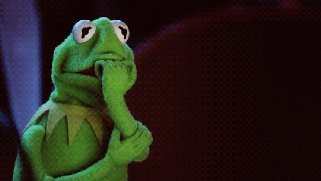
And let me tell you, I fluffed it a bit. But I had practiced dozens of times, and was ready to go. I made my way through, answered some questions, and found myself walking away with my mission complete: I had a card with submission instructions! Someone wanted to hear more! From there, it was on to the next queue, and the next pitch. Two hours whizzed by, and I found myself with five publishers who were willing to hear more.
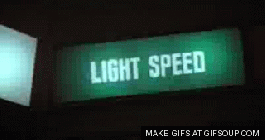
With the event over, it was time to call home; I’m not gonna lie: there were a few happy tears as I told my partner how everything had gone. She’s supported me every step of the way, and it was a big emotional release.
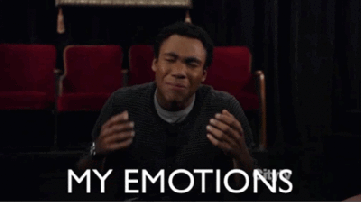
Despite the elation of success on the day, I’m still staying grounded about the possibilities from here on out: what I’ve earned now is a chance to present my work. It may be that it won’t suit the publishers’ list, or a myriad of other scenarios. But I’ve succeeded in getting a start, and that fills me with a deep sense of satisfaction around the event itself, my approach, and the reality of my situation.
The publishing journey continues.

I couldn’t have prepared for the event without the help of my fellow authors, two of whom (Cassandra and Alex) had been to a Literary Speed Dating event previously. They’ve generously agreed to share some of their practical tips for next year’s crew to consider below. Everyone comes from a different angle, so enjoy!
Part II: Some Super-Practical Literary Speed Dating advice:
Mingle. Finding out how nervous your fellow writers are develops a sense of unity, camaraderie and develops contacts. Be engaged with your community.
Keep your pitch pithy and to the point. Include basic plot, the most interesting characters, and the one or two points that make it stand out. Three minutes is longer than you think.
Have confidence in yourself and your work. Have at least a few chapters printed and ready to roll. If you do print your whole manuscript, keep some bull clips handy in case they only want a few chapters. Be optimistic.
Bring water. Dry-mouth is a bitch.
Keep your pitch as short as possible. Just the bare bones. Work on broadcast timing of three words per second. Prepare to be flexible: Some publishers will let you go then ask questions; some will interrupt. And be prepared to ask them questions: if they say it’s not what they’re looking for, ask them what they are looking for.
Listen to what the publishers say. The rejection may not be because of your manuscript. There may not be room in their list, or there may be a similar project. Feedback could include that the story’s the wrong length for the target market, the protagonist is the wrong age, the issues are too light or heavy. Take this and use it to refine your work. Take ‘good pitch’ or ‘sounds interesting’ as positives. ‘We don’t publish that genre/age group’ is a sign you need to do more research into publishers.
Last year one publisher asked me for the first three chapters of a YA manuscript. They declined, but gave me some excellent detailed feedback. I rewrote the manuscript, and then was awarded a mentorship for the story.
Know thyself. Know what makes you trip up. If I have a tightly rehearsed spiel I can’t improvise and have a natural conversation, which let’s be honest, that’s more comfortable for everybody. For example, I had about a paragraph of essential information that I wanted to get across but I was interrupted with a question from the publisher. Then when I continued with my speech I repeated exactly what I had just said. Fortunately we both just giggled and that broke the tension. But know if you are the sort of person who needs everything planned out, and practise with people and see what questions they have and have short responses memorised. So know what works for you and don’t let people telling you how it *should* be done sway you.
Practise Empathy. This is probably good life advice, but if you consider what it must be like to be pitched at for two hours straight I think it would change how a lot people talk to publishers. It must be tiring to listen to people speechify at you for two hours straight. Also I hope that most of the publishers went out to a nice dinner, maybe some drinks afterwards, not back to their offices to pore over your synopsis. So I don’t think giving them a load of various print outs is the best way to go; be sensible with how much paper you bring along. Be kind and don’t take up more of their energy than you need to.
Oh and wear comfortable shoes, you will be standing in line a lot.

That’s it, folks! I hope you’ve enjoyed this two part special. If you have any further questions, feel free to hit any of us up on Twitter – we love to share!








June 21, 2016
Crossroads.
So, this is it.
I’m a few days out from an important moment in my writing career. On Saturday, I’ll be sitting down for the Australian Society of Authors’ Literary Speed Dating event (which makes for a fine event, but an unfortunate acronym). I’ll be using three minute time slots with industry professionals to pitch the concept for my novel, which is completed and almost ready for submission.
But this event isn’t just a chance for me to get face time with people from inside the publishing industry; it’s also a chance to look back and see how far I’ve come in the past years, and look to the future.
It was almost two years ago that I uploaded my first novella to Amazon. I didn’t have a great cover, the manuscript needed more work, and I had no idea what I was getting myself into. Now that I’m sitting here two years on, I can look over a number of mistakes, and a number of successes. I’ve seen over 25,000 eBooks downloaded, and today I hit 20,000 Twitter followers. I’ve established an online presence which has allowed me to build a base from which I can continue to grow – I even run into people who’ve read my work around Reddit these days.
There are plenty of things I would consider doing differently if I had the chance to start over, from holding off publishing a bit longer to editing my work professionally sooner. But in reality, I wouldn’t change a thing. The writer I am today is a product of all my experiences, and you can’t cheat out on experience; you have to live it.
When I sit down on Saturday, I’ll be presenting my novel concepts to someone outside my inner circle of authors and beta readers for the first time. It’s the moment I’ve been working towards for several months, and I can’t wait to see how things go.
Thanks for your support, everyone. I hope to repay the faith you’ve shown in me in some small way over the coming years.








June 13, 2016
The Juggling Act.
So many things. All of the things.
Sometimes it feels as though life is a never-ending struggle to keep multiple priorities in check whilst striving for some forward motion. Writing is no different. In fact, writing is a microcosm of life.
New things start, old things die. There are clashes and drama. Writing has taught me about life, and life has given me the skills to deal with writing. When I was young, I was naive: I thought life would be simple; a linear trajectory leading to ultimate success. How wrong I was! I had to learn to prioritise, to deal with disappointment, and above all, to learn to deal with myself.
In terms of my writing, I’d love to just focus on what I enjoy doing: creating new stories, and having people read them. The reality is that there’s a lot more to the business of writing than simply generating new content. The devil is in the detail, and the details are never ending. In my current situation, that means I’m working on a pitch for an upcoming event, trying to keep momentum happening in my new novella, and maintain my social and web channels.
All of that leads to a conundrum: in the middle of all this juggling, how do you find time for what matters? I mean, we all struggle with the constant juggle. I think the key is to keep things set in jelly: give yourself space to fail, and to change priorities as necessary. As such, I’m committing myself to grace. Grace to fail, and grace to get to where I wanna go in a timeframe that doesn’t burn me out.
So here’s to the juggling act; in life, and in writing.








May 17, 2016
Narrative: My Answer to the ‘King Club’
Today I thought I’d take a step back from what I’m writing and talk a bit about how I write.
Over the past years, I’ve had a number of conversations with people regarding the best approach for writing a narrative. One thing is clear in my observation: no two writers work in the same way, and there’s no such thing as the ‘perfect’ way to write a plot. At least, that’s what I think; others tend to differ. No sooner had I started writing than I encountered what I’ll call the ‘King Club’ – people who love to throw out facts about the techniques of famous authors, especially their favourite, the one and only Stephen King. They’re often the same people who’ll tell you to always show not tell, and to never have an exact ending in mind – because if it works for Stephen King, it’ll work for you.
Well, it doesn’t work for me. In fact, I’ve found that I need to have a crystal clear structure mapped out for my story, or else I get stuck. It happened to me when I wrote The Vanishing Villa – I hadn’t figured out a key moment in the story, and I just couldn’t crack it. Since that experience, I’ve always worked to have a clear flow in my narrative and a fairly specific ending in mind. Here’s the process that works for me:
My stories usually stories start out with a twist in mind. I think of something that would really surprise me as a reader, and then I work backwards from there. That approach has spawned all of my Inspector Ambrose stories so far, and The Clockwork Dungeon features (in my mind) some of my best ideas in terms of the mystery itself – though it will be quite different from the first three Inspector Ambrose novellas.
As I move from planning to drafting, I try to allow room for the story to develop naturally. If something feels forced, I’ll think about how what I’m writing at the moment would naturally affect the plot. This happened today, when I realised how I could do the big reveal in my story: even though I had the what figured out, I needed a decent how. As I was typing, the solution became obvious, and now I’m looking forward to writing the finale of this story, since the how has become self-evident.
So that’s my process in a nutshell. If you’re currently in the process of writing a story, my advice would be to not stress too much. Practice what does and doesn’t work for you, and remember not to pay much attention to the King Club. They may have some good points, but in the end, you need to find a style that you can own and enjoy.
As for me, it’s back to writing – I’m about a quarter of the way through my first draft, and looking forward to seeing how the details come together as I follow my plan.
Bye!








May 12, 2016
The Clockwork Dungeon: A New Inspector Ambrose Story.
He’s back.
After reaching the end of my third novel, I’ve now found myself back at the beginning: writing a story about my original character, the incorrigible Inspector Ambrose.
This new story will see Ambrose returning to Traville after his previous outing at Mansfield Manor. I’ll be using a wide array of characters once more, and this time I’m hoping to challenge the reader to think about the answers a little more. In that sense, this story will be more focused on an older audience.
At the moment, I’m expecting to bring the story in around the 20,000 word mark, similar to the previous two stories. I’ve knocked off 1,500 words thus far, and will be charging ahead in the coming days. As always, I’ll keep updating this blog as I go, so do follow along to keep track of where everything’s going, and the challenges I face along the way.
Wish me luck!









